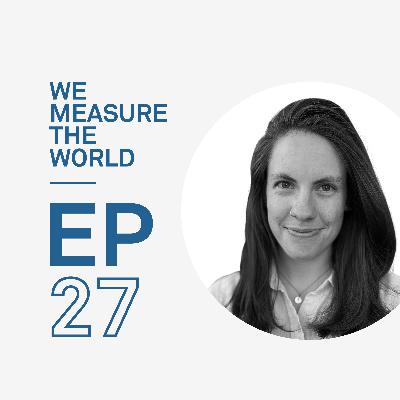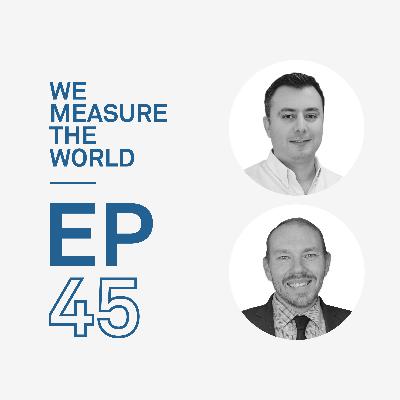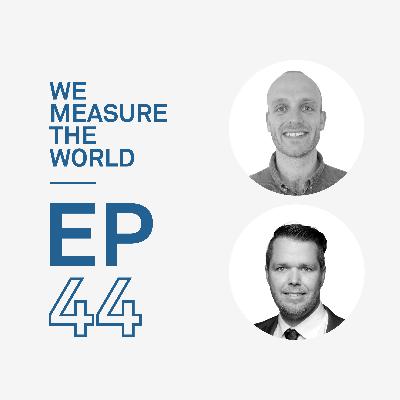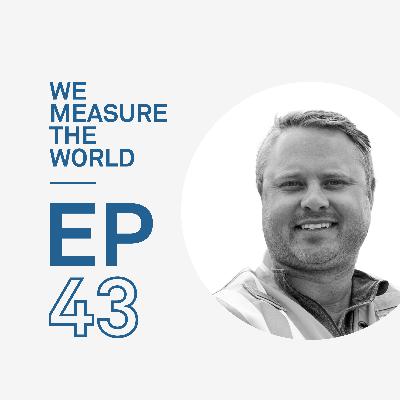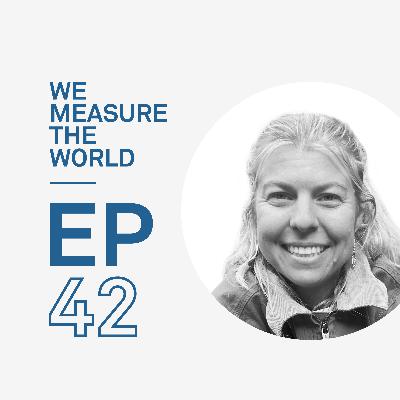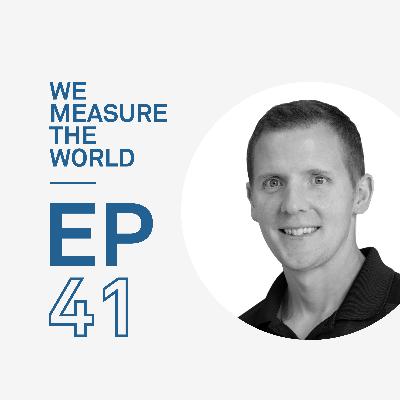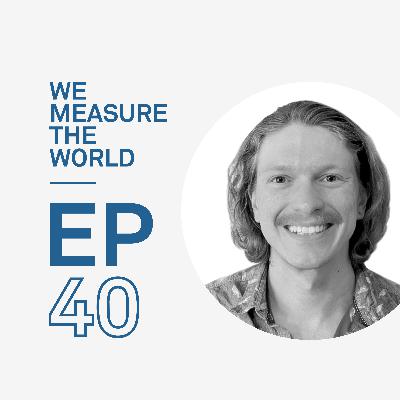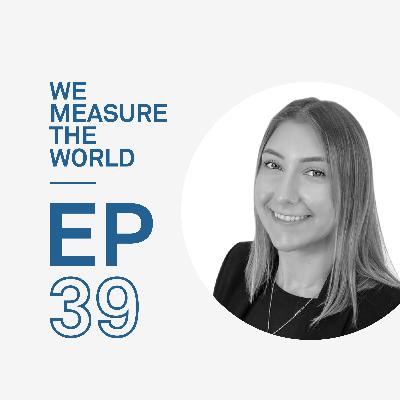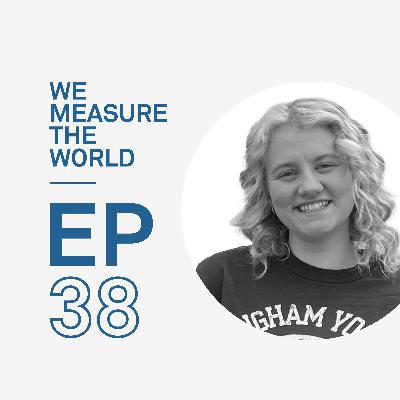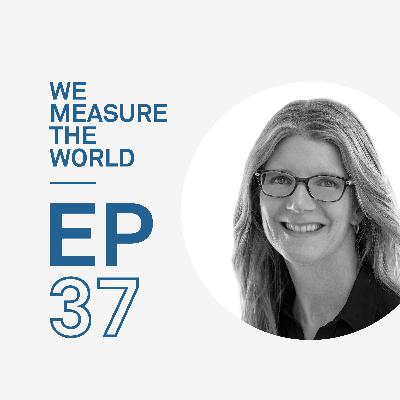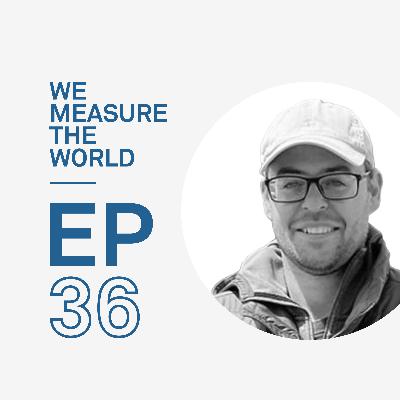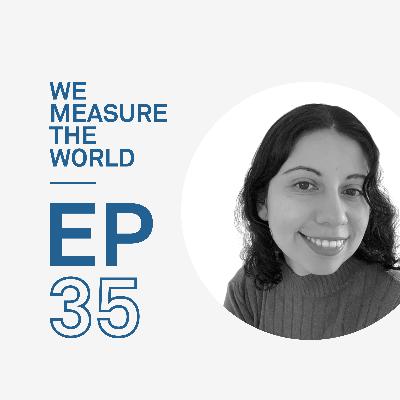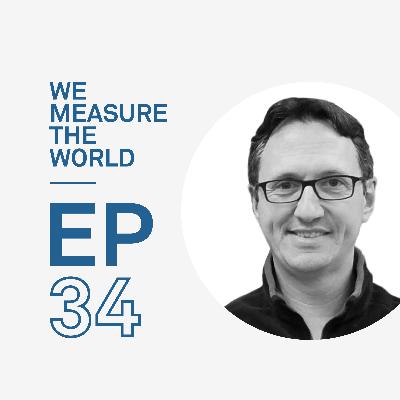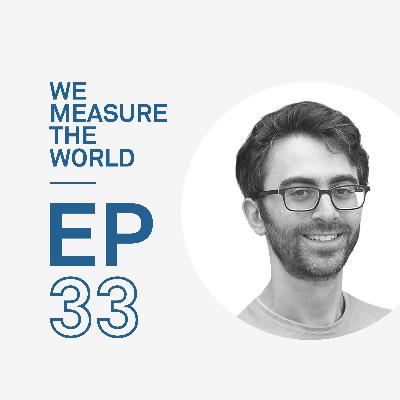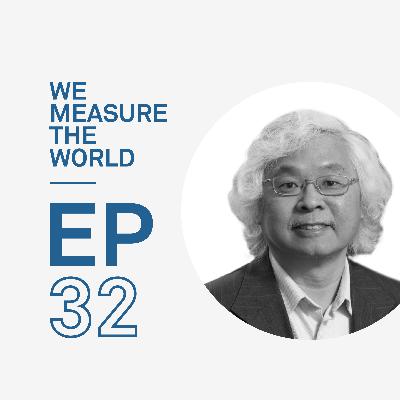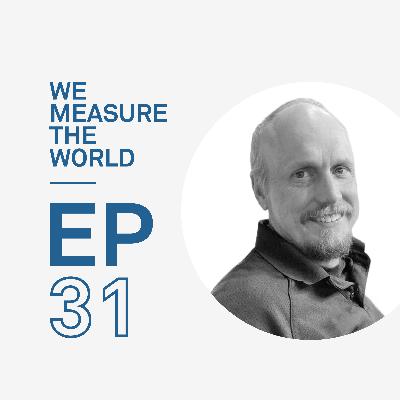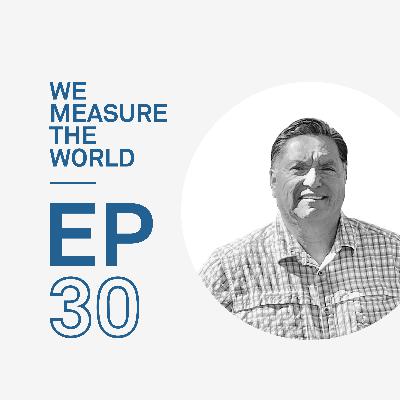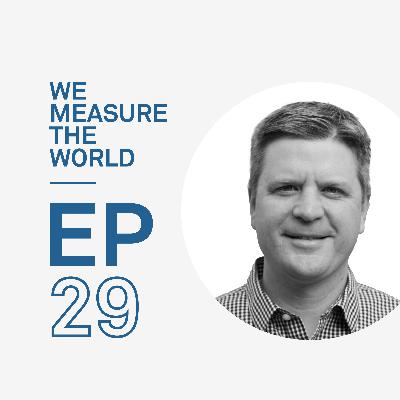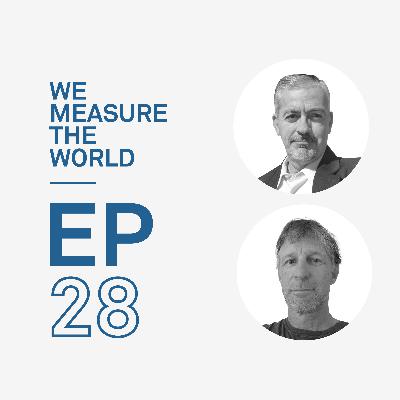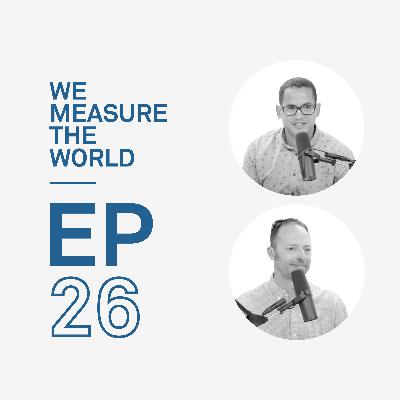Episode 27: The battle for earth: cattle vs. solar
Description
Taylor Bacon is a Ph.D. student of soil and crop science at Colorado State University. She obtained her Bachelor’s in Chemical and Biological Engineering from Princeton University with a focus on energy and the environment and a minor in sustainable energy. As a Ph.D. candidate, she is researching nature-based climate solutions, land-use emissions, and food/energy systems.
Podcast Transcript:
BRAD NEWBOLD 0:00
Hello everybody and welcome to We Measure the World, a podcast produced by scientists, for scientists.
TAYLOR BACON 0:08
I think one of the hardest things we ran into was when we were initially designing this research plan and kind of deciding what data we wanted to collect. Deciding what sensors we wanted to use, where we wanted to install them, is that there is so much heterogeneity and variation within the solar array, even just within a single block of panels across even just a couple feet apart because of these different zones. And it was challenging to balance okay, what can we feasibly measure and what how much data can we feasibly collect, while still capturing enough of this variability to actually be accurate and to have representative data?
BRAD NEWBOLD 0:53
That's a small taste of what we have in store for you today. We Measure the World explores interesting environmental research trends, how scientists are solving research issues, and what tools are helping them better understand measurements across the entire soil plant atmosphere continuum. Today's guest is Taylor Bacon, a PhD student in the Department of soil and crop Sciences at Colorado State University. She obtained her bachelor's degree in Chemical and Biological Engineering from Princeton University with a focus on energy and the environment, and a minor in sustainable energy. Now, as a part of her Ph. D program, she's researching nature based climate solutions, land use emissions, and food energy systems. And today, she's here to talk about her research into agriculture ticks, regenerative energy, and land use, and much more. So Taylor, thanks so much for being here.
TAYLOR BACON 1:42
Thank you so much for having me.
BRAD NEWBOLD 1:44
So today, we wanted to talk with you about your your projects and research interests. So can you tell us a little bit about your background and how you got into to where you are now with environmental sciences and into your your specialty, and you're a PhD researcher?
TAYLOR BACON 2:02
Yeah, so as you mentioned in the intro, my background is actually in engineering, I did my undergrad in chemical and biological engineering, focusing on sustainable energy. And my undergrad thesis was looking at bio energy for jet fuel production as kind of a sustainable alternative. But my senior year, I took an environmental policy class, and really just had this moment of being like, Oh, this is what we need to actually make these technical solutions I've been studying and work on happen in the real world, and we can be doing the research. But if there isn't the policy to actually drive that into implementation, that's kind of a missing piece. So I got really interested in environmental policy. And after graduating, got a fellowship at an environmental nonprofit working on climate and clean air and energy policy, and spent a couple of years doing that. And it was really, really valuable experience, I learned a ton and kind of developed an understanding of how all of these drivers work together and kind of what actually has to happen for change towards a like sustainable climate future. But after I was there for like three years, and towards the end, I of my second or third year, I started really missing science and kind of more quantitative work, I was doing a lot of policy analysis and advocacy, but kind of was itching to get back towards the more quantitative side of things, started thinking about what I wanted to do next, and had a couple criteria, I wanted to do something where I could do fieldwork outside and physically be collecting data and kind of be more on the ground. At an actual place collecting actual data after doing a lot of kind of modeling and high level analysis. I wanted to do something that was really solutions oriented. So I wanted to be doing science, but I wanted to be working on science that was kind of directly applicable to these problems we're facing and was really solutions oriented. And then I'd taken a bunch of environmental chemistry classes and undergrad and started kind of looking in that space and found my way to this soil science program that kind of matched all of those criteria. And this project specifically that I'm working on in Agra voltaic is really exciting because it kind of matches my background and sustainable energy and energy policy with this soil ecology biogeochemistry side of things that I'm more recently getting into.
BRAD NEWBOLD 4:40
That's awesome. That's super cool. I want to I want to touch on all of that. So but yeah, so can we can we go back you you've mentioned that in your undergrad research and I definitely want to dig into what you're doing. Now. That's going to be the bulk of what we want to talk about today. But it. But you've talked about working with with biofuels and doing research in that aspect. And you said bio jet fuels. That's something that that I am not sure if I'm familiar with, in general with biofuels, but not bio jet fuels. Can you tell us a little bit about about that, and how, how that works with I mean, with jet fuel, it's very, it needs to be, you know, very high quality. And, you know, a lot of more, a lot of other things like that. But can you tell us a little bit about that?
TAYLOR BACON 5:31
Yeah, so this was a while ago, so I'm a little a little removed from the weeds. But the idea, or kind of the motivation for this project was that we can electrify a lot of things. And electrification is a really good option for decarbonizing a lot of different sectors of the economy and a lot of different modes of transportation. But large scale electric aircraft are probably pretty far down the line. But in the meantime, we have technological options for creating jet fuel from plant residue from different plant based sources, that when you're growing that feedstock, you're sequestering carbon. So the idea is that then your your bio jet fuel is carbon neutral, because the emissions that are released are balanced out by the carbon that sequestered when the plant is growing. So my thesis was using chemical engineering modeling software to design and model a pathway for converting, I looked specifically at forestry residue as kind of a sample feedstock that has a little bit maybe a little bit better sustainability on the front end, because you're not displacing agriculture, or kind of it's this material that's already there. And there's definitely limitations and collecting it and accessing it. But that's what I use as my feedstock and then designed in model this process. And this modeling software for converting it to a jet fuel, in theory could be used as a drop in jet fuel in existing infrastructure. But didn't economic analysis and was basically like, this is not feasible unless you have really ambitious carbon credits and a lot of policy support, which kind of tied back into the turning of my attention to environmental policy.
BRAD NEWBOLD 7:21
Right. So with that, I mean, I would assume that if, if you have a an undergrad at Princeton, who is interested in the stuff that I'm sure there's plenty of other organizations and corporations that are dealing with, you know, biofuel research and those kinds of things. How did that tie into to what the I guess the existing research and kind of research and development was, has been doing in that in that field?
TAYLOR BACON 7:46
Yeah, it was actually really great, because there was a company actually based in Oregon, called Red Rock biofuels, that were just starting to try and design and build and implement, I think the the plant was maybe just starting construction when I was working on my thesis for a very similar pathway. So I got to connect with them and chat about their work a little bit. And then there's a bio jet or not a jet fuel, but just a biofuel plant in Iowa. That's one of the only commercially operational ones in the US, I believe, or at least was at the time. So I got funding from Princeton to go to or that plant and kind of see what they were doing. So I definitely, yeah, I did my best to kind of see what was actually happening and kind of where this fit in with what other people were doing. And there were definitely other companies that were kind of starting out on the same path that I was looking at. And we're, we're definitely ahead of what I was doing, because they were actually building a plant rather than just modeling it.
BRAD NEWBOLD 8:49
Right. Right. So is that something then art? I mean, I guess, probably not in the commercial space, what are there then, I mean, you know, aircraft jet engines that are running off of biofuel, or like mixed or hybrid fields.
TAYLOR BACON 9:04
I think United has been doing a lot on sourcing their jet fuel and incorporating biojet fuel. So it's definitely a pretty small fraction. But there are a lot of people working on kind of setting targets and moving towards having it be more prevalent. And I think there are some airlines that as kind of a way of supporting these pretty young technologies and young plants will agree to buy a certain amount of biofuel, and that can kind of serve as a financing guarantee to actually get these things off the ground.
BRAD NEWBOLD 9:39
That's awesome. That's cool. That's fun to see. I mean, it's one of those things where Well, I think a lot of a lot of what's interesting with with what we're goin

